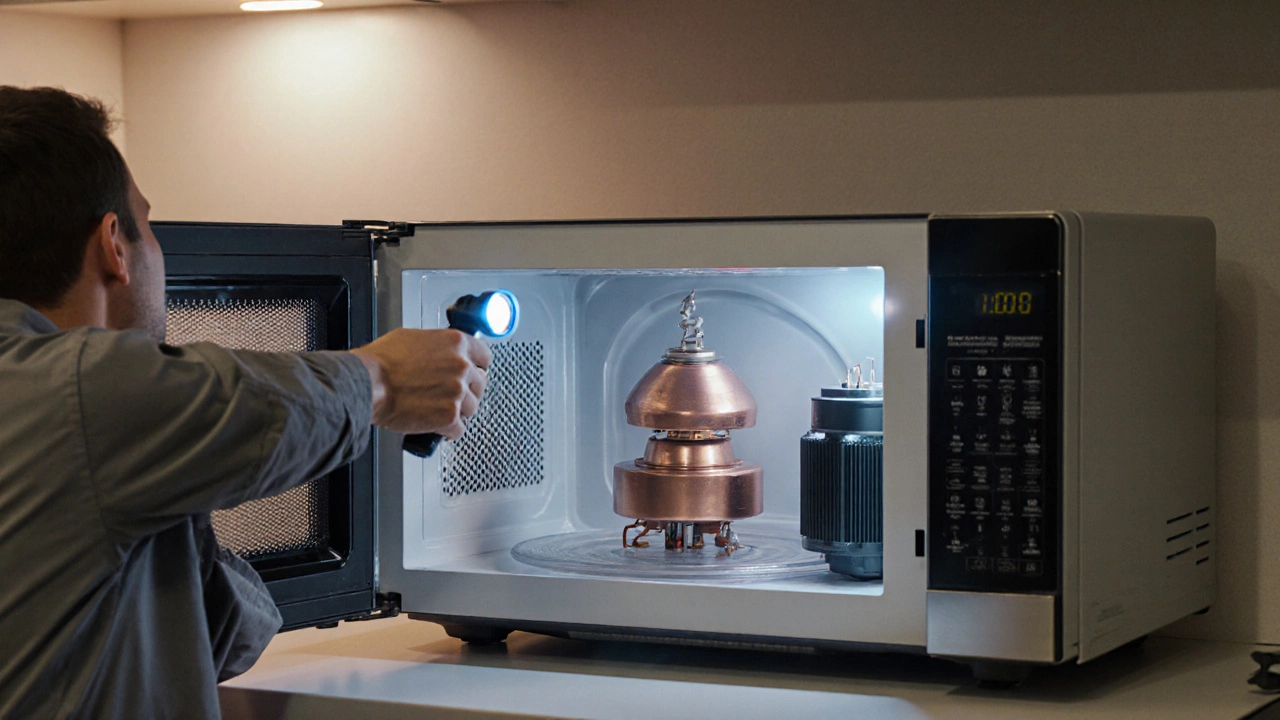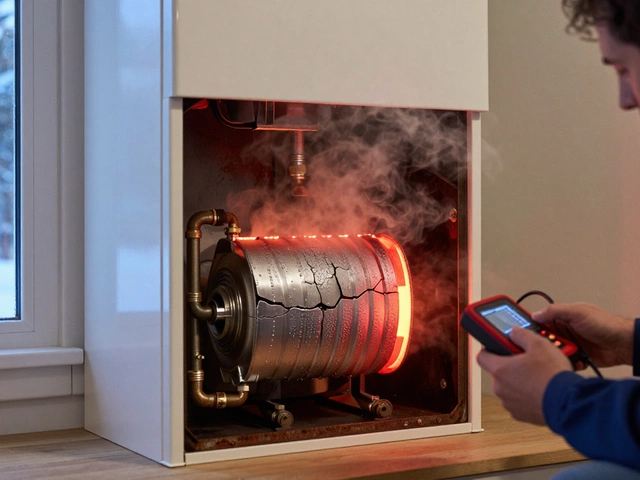Boiler Servicing: What Happens If You Skip It?
June 12 2025Is a Microwave Worth Fixing? Practical Answers for Homeowners
When dealing with microwave, a kitchen appliance that uses electromagnetic waves to heat food quickly. Also known as microwave oven, it can become a source of frustration the moment it stops heating or starts sparking. Deciding if a microwave worth fixing isn’t just a gut feeling – it’s a mix of cost, safety, and how long you expect the unit to last after a repair.
First, look at the microwave repair, service that restores functionality by fixing the magnetron, door switches, or control board. A qualified technician can diagnose the exact fault in under an hour, and most common issues—like a failed magnetron or a broken door latch—cost between £70 and £150 in labour plus parts. Compare that to the price of a new mid‑range microwave, which usually sits around £120‑£250. If the repair bill creeps past half the cost of a new model, you’re probably better off replacing it.
But price isn’t the only driver. Safety plays a huge role, especially with appliances that generate high‑frequency radiation. A damaged door seal can let microwaves leak, posing health risks. Likewise, a faulty transformer can overheat and start a fire. Appliance maintenance, regular checks and cleaning that keep appliances running safely and efficiently helps catch these problems early. Simple steps like cleaning the turntable, checking the door seal for cracks, and ensuring ventilation slots stay clear can extend a microwave’s life by years and reduce the chance of costly emergency repairs.
Next, think about the energy side of things. Older microwaves often run hotter than needed, wasting electricity. A modern, Energy Star‑rated unit uses less power while delivering the same cooking speed. If your current microwave is more than a decade old, the annual energy savings from a newer model might offset the upfront purchase price within a few years. Running the numbers—average usage of 15 minutes per day, old unit at 1200 W versus new unit at 900 W—shows you could save roughly £30‑£40 each year on electricity.
When you weigh repair versus replacement, a quick cost‑benefit analysis helps. List the estimated repair cost, the price of a comparable new microwave, expected lifespan after repair, and any energy savings. If the repaired unit will only outlive a new one by a year or two, and the repair cost is close to the price of a new model, it’s usually smarter to replace. On the other hand, if the fault is minor—a door latch or a burnt-out fuse—spending £50‑£80 can give you five to seven more years of use, making repair the clear winner.
DIY fixes are tempting, but microwaves aren’t the best candidates for amateur tinkering. The high voltage capacitor can retain a lethal charge even when unplugged, and the magnetron contains hazardous materials. Trusting a certified gas engineer or appliance specialist not only ensures the job is done right but also keeps your home insurance valid. If you do opt for a DIY route, always discharge the capacitor and follow a reputable guide step‑by‑step.
In short, the decision hinges on three core questions: How much will the repair cost relative to a new unit? Is the appliance safe to keep using after the fix? Will a newer model give you energy or performance benefits? Answering these will give you confidence whether your microwave is truly worth fixing.
Below you’ll find a curated set of articles that dive deeper into repair costs, safety checks, energy considerations, and practical tips for a range of kitchen appliances. Whether you’re leaning toward a repair or a replacement, these resources will help you make an informed choice without the guesswork.
 13 Oct
13 Oct
Should You Repair Your Microwave? Cost vs. Replacement Guide
Learn how to decide if fixing your microwave makes sense. Compare repair costs, common failures, energy savings, and when to replace for a smarter kitchen choice.
Read More...



